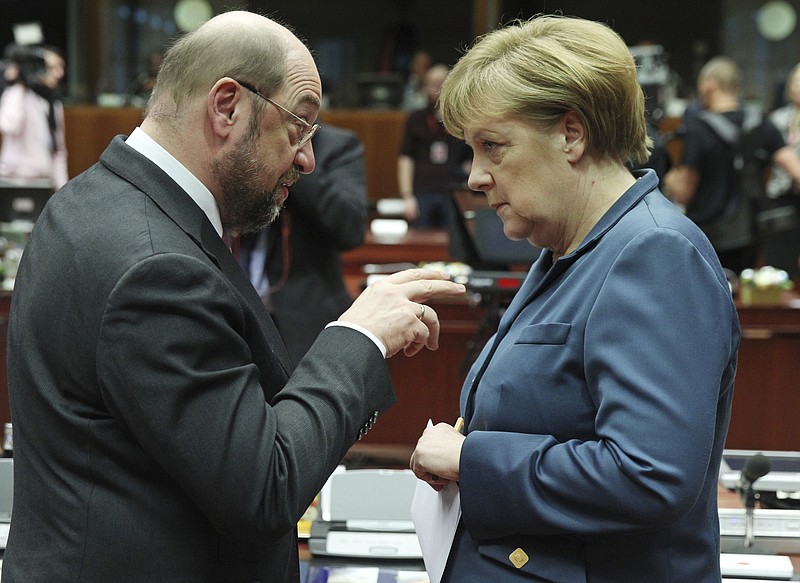BERLIN (AP) - Germany's Social Democrats nudged past Chancellor Angela Merkel's conservative bloc for the first time in more than a decade according to a poll released Friday, as the center-left party rides a wave of enthusiasm from their surprise nomination of a new leader.
The Infratest dimap poll for ARD television showed the SPD gaining four points compared to three weeks earlier to reach 32 percent support while Merkel's Union bloc fell 3 points to 31 percent.
The SPD is enjoying a boost from the choice last month of Martin Schulz, the former president of the European Parliament, to challenge Merkel in September elections. Experts caution it's too early to tell whether the momentum will last.
The SPD is currently Merkel's junior coalition partner in government. Schulz hasn't ruled out a coalition with any major party except the nationalist Alternative for Germany, or AfD, after the Sept. 24 general election.
AfD has seen its support decline in recent months amid party infighting over comments by a prominent member who suggested Germany should end its decades-long tradition of atoning for its Nazi past. The remarks by Bjoern Hoecke, who leads the party in the eastern state of Thuringia, reopened divisions among the AfD leadership about where to draw the line when it comes to sensitive issues such as the Holocaust.
A recent trip by AfD co-leader Frauke Petry to Moscow, where she met with members of Russian President Vladimir Putin's party, has also raised fears among some AfD officials that conservative voters could be alienated if the party is seen to be cozying up to Russia.
In the new poll, the support for AfD declined one point to 11 percent, down from as high as 16 percent last fall.
The poll also showed that the Left party's support declined one point to 7 percent while the environmentalist Greens and the pro-business Liberal Democrats stood unchanged at 8 percent and 6 percent respectively.
The poll's margin of error was plus or minus 1.4-to-3.1 percentage points.
_____
David Rising contributed to this story.
